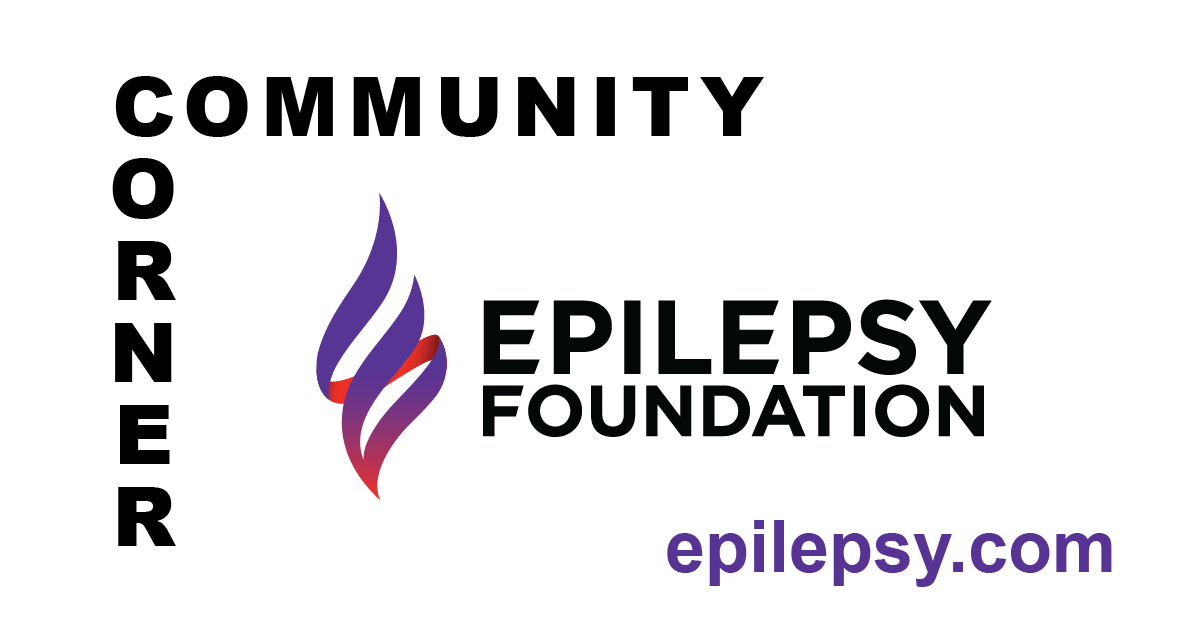Community Corner: Get Informed – More about Medical Cannabis

Epilepsy News From: Saturday, June 10, 2017
Recently we shared results of a trial of Epidiolex (a form of purified cannabidiol or CBD) in people with Dravet syndrome. We hear about cannabis in the news all the time too. Many questions, excitement, and skepticism are arising amongst our community.
Recently the journal Epilepsy & Behavior published a series of articles about medical cannabis. I found these very helpful and wanted to share a few with you.
Why do we need more information about medical cannabis?
- Not all medical cannabis products are the same! The differences among products have likely contributed to different reports of effectiveness in papers, case reports, and personal experiences. Some substances in the cannabis plant may not help seizures or could worsen them, others may help. Side effects may be related to different substances too. We just haven’t had the data to know.
- A recent review of cannabinoids in refractory epilepsy highlights experiences with open labeled studies. Many of these studies showed benefits to some people, but the studies were not controlled. This means that people knew what they were getting, and their results were not compared to a group of people taking a placebo or inactive substance. This article highlights the importance of understanding the placebo effect when any new treatment is studied.
- CBD and other cannabis products have side effects just like medicines. Interactions with other drugs that a person takes may be a problem too. Anyone considering a new treatment should know if it’s safe for them and if there could be interactions with medicines they are taking.
What are the legal issues with using medical cannabis and cannabidiol?
This is a huge and confusing issue from my perspective. Maybe even more confusing than the scientific questions. A recent article published in Epilepsy & Behavior about the legal status of these products in the U.S. offers insight into the many complexities.
A few take-home points to consider:
- At this time, 29 states and the District of Columbia have created medical cannabis programs, and products with high CBD and low THC (tetrahydrocannabinol) are allowed in another 17 states.
- No therapies derived from cannabis or CBD have been approved by the U.S. Food and Drug Administration (FDA) for use in epilepsy. One potential therapy, Epidiolex, is seeking FDA approval.
- People must understand the federal laws against prescribing and possessing these substances and what health care providers can and cannot do in individual states, including states allowing use of medical marijuana or cannabis.
- Carrying cannabis or CBD products across state lines is a federal crime even if the product is transported between states that have medical cannabis or CBD programs.
- The terms – medical marijuana, cannabis, cannabidiol, high CBD, low THC, hemp, and more – are confusing and don’t all mean the same thing. Here is a glossary of terms that may help provided by GW Pharmaceuticals, Plc.
What can I do with all this information?
If you or a loved one are having problems with your epilepsy or treatment, absolutely talk to your epilepsy team. There may be other options to consider: new seizure medicines, dietary therapy, devices, surgery, or new treatments being studied.
If you have gone through all the testing and options and you are interested in alternative therapies like medical cannabis...
- Talk to your epilepsy team to see if there is a research trial you can be part of. This way your health would be monitored closely and you’ll be helping gain valuable information about cannabis as a possible epilepsy therapy.
- Talk to the providers who know you best and understand your seizure medicines. Since medical cannabis products can have side effects and are broken down in the liver, you may be at risk for drug interactions.
- Don’t try something based on what you read on the Internet. Read the articles, such as the ones listed above. These can help you talk to your doctor and understand the complexities of the issue. Ask for more information too that may pertain to your unique circumstances.
- Know the laws in your state and federal laws. It’s critical to be aware of what you can do and what you can’t do. Learn more about state laws related to cannabis.
- Be honest with your health care team if you are using or considering cannabis or any complementary therapy for epilepsy on your own. Everything has side effects and you’ll need help keeping an eye on this.
Best wishes for a safe week!
Patty Osborne Shafer
Associate Editor, epilepsy.com
Authored by
Patty Obsorne Shafer RN, MN
Reviewed Date
Saturday, June 10, 2017
